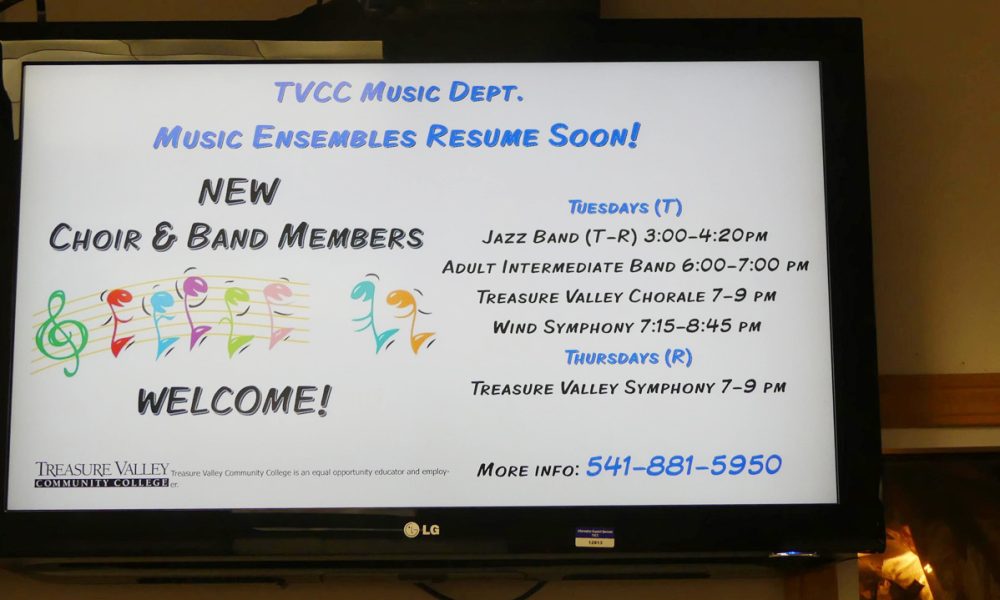
That sound you hear in Ontario is two freight trains heading at each other at full speed on the same track with no brakeman aboard. That’s the best characterization we can think of to describe the state of relations between administrators and faculty at Treasure Valley Community College. Unless something dramatic happens, we’re about to see a colossal wreck.
For a year, talks have been underway to strike a new pay deal between the college and 36 faculty members. The existing contract expired last June, the college budgeted on hopes it would have a cost-saving deal in place, and faculty members are guarding their pay and their workload.
Tensions are mounting. Mediation sessions haven’t worked. The faculty is drumming up community support. Last week, college officials put six bodies on that railroad track, announcing that the budget troubles mean six faculty members could lose their jobs.
Both sides profess great concern for the college and for the students. That’s where the attention should be. But anytime an argument drags on, both sides tend to dig in harder. The goal becomes to win, regardless the cost.
At this point, the college is poised to simply impose a contract on the faculty. The instructors can accept it – unlikely – or they can go on strike.
That should not happen. For Malheur County, the cost of such a train wreck is too high. Students will suffer. The college will suffer, sustaining damage to its efforts to turn around dropping enrollment by recruiting more students. The community will suffer, a vital institution mired in a labor battle. And relations in the college community and the broader community also will suffer, with harm and anger that could take years to heal.
Something must change before it’s too late to dramatically boost the odds of closing a deal and ending this battle.
The two sides have engaged in mediation off and on for weeks. The sessions have been marginally successfully, tinkering with relatively minor language toward a deal. The main sticking points, however, remain on the table, unresolved.
Perhaps it’s time to change mediators. They come from the state, and state officials ought to recognize the high cost of the coming collision. Perhaps the state should dispatch its A Team mediation crew to lock everyone in a room until there’s a handshake.
Another option is to find a neutral third party to come in and assess the college. That would mean digging in to understand the finances, the history, and the likely future of the college. This neutral person would report on the facts – information that the college administrators, the faculty, students, and the community can trust. One problem at the moment is there are competing claims about the college’s finances. Having a credible base of information could eliminate a lot of bickering.
The more dramatic option is for the parties to volunteer for binding arbitration. This isn’t required by law or by the contract being replaced. But it would provide for an independent party to consider the points from both administrators and faculty. The arbitrator then would decide what would be a fair contract – fair for administrators, fair for faculty, and certainly fair for students.
But both sides need to agree on some new path forward – and quickly. Bringing in an evaluator or arbitrator with no connection to the college, union, or even Malheur County seems essential. This person would have to be respected from the start, carrying with them the integrity and reputation to make a decision that would be accepted by all. One choice would be a former chief justice of the Oregon Supreme Court, such as David Brewer or Paul DeMuniz. Judges are experts at listening to both sides, sorting out competing claims, and settling disputes. Brewer or DeMuniz would be excellent choices, assuming they would agree to this important duty.
There may be other ideas for getting a deal done. Leaving the two sides to fight it out either behind closed doors or across a picket line is unacceptable. And if either side continues barreling down the tracks toward that result, they reveal themselves as more concerned with pushing the other guy off the track then in delivering a good deal for Treasure Valley Community College and the community. – LZ




